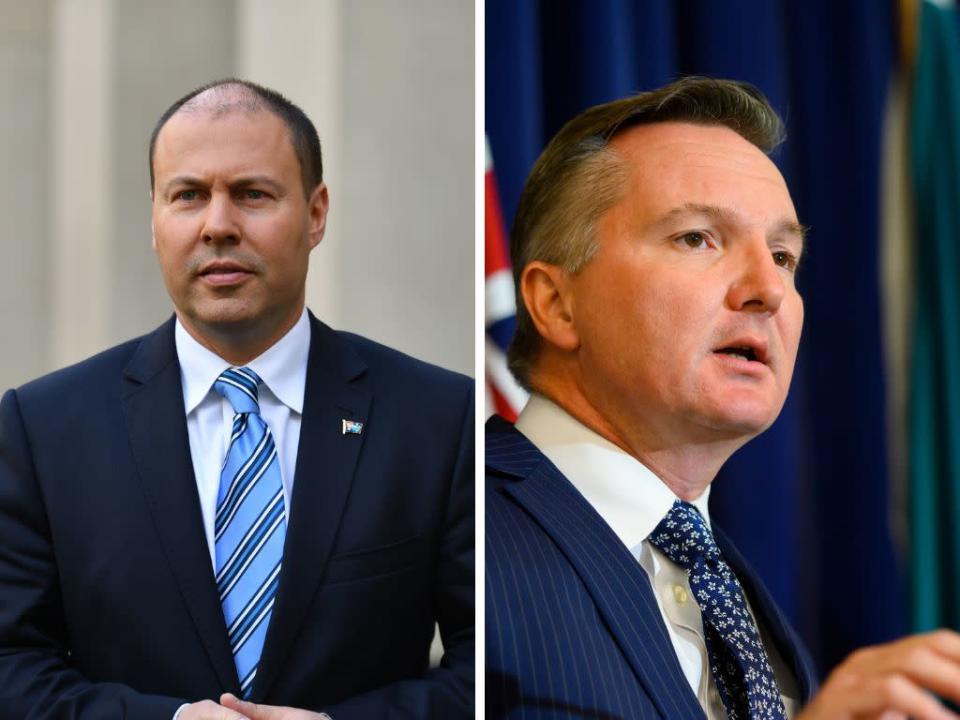Labor vs Liberal… If you’re worried about your super

Yahoo Finance will have the election covered this Saturday. Stay tuned to the website and your inbox for our coverage.
Superannuation isn’t the sexiest topic, but it’s one that’s risen dramatically to the fore since the Banking Royal Commission highlighted the systemic wrongdoing going on in our major financial institutions.
Major reforms of the $2.7 trillion dollar industry have already rolled out under the Coalition government, but there’s more slated if they’re re-elected – and even more changes to come if Labor wins.
Depending on whether Labor or the Liberal-National Coalition wins, here are the changes coming for your retirement money:
Here’s what will change for sure
While both sides of politics have very different approaches, there’s one thing they’ve agreed on and it’s to raise the percentage of super you get.
The two major parties have agreed to incrementally raise the compulsory superannuation guarantee (SG) from the current rate of 9 per cent to 12 per cent, increasing by 0.5 per cent every year until it hits 12 per cent on July 2025.
However, Labor is more gung-ho about this change and aims to increase the guarantee to 12 per cent “as soon as practicable” if it wins and work towards 15 per cent.
If Labor wins the election...
Labor has a suite of changes they want to make to superannuation if they’re elected on Saturday:
The non-concessional contributions cap, which is the total amount of super you can contribute from your after-tax income, will be lowered from $100,000 to $75,000 a year under Labor.
Speaking of lowering thresholds, something called the ‘Division 293 threshold’ will also be brought down. This threshold is a tax of 15 per cent paid by high-income earners whose combined income and concessional super contributions are more than $250,000. Labor is proposing to lower this threshold to $200,000.
The carry-forward contributions cap, also referred to as the catch-up concessional contributions cap, will be scrapped under Labor. This cap lets you accumulate any shortfalls of your annual contribution cap of $25,000 for up to five years to make additional super contributions if your super balance is under $500,000.
The policy, announced by the Coalition, comes into effect on 1 July 2019, but Labor is planning to abolish catch-up concessional contributions, which the party says was more likely to be used by high-income earners.
Tax deductibility for personal super contributions will also be removed under Labor. Aussies can currently claim tax deductions on personal contributions to your super from after-tax income.
Scrapping this will bring Australia back to the 10 per cent rule, according to Canstar, where it’s largely freelancers and self-employed people who can claim deductions.
Labor wants to change the law so that superannuation is an employee’s right under the National Employment Standards.
Changing this law will give workers the power to pursue unpaid super: currently, unpaid super contributions are debts owed to the ATO, not to the worker, but putting super within the National Employment Standards in the Fair Work Act will allow workers get their super back from their employers through the Fair Work Commission or the Federal Court.
As part of the crackdown on dodgy bosses, Labor will impose fines on employers who don’t pay super “because of a false or misleading statement” that will equal the same amount of unpaid super.
Labor is also boosting the super balances of women and low-income earners with a suite of measures to help close the 40 per cent superannuation gap between men and women:
Labor will have super paid to parents on Paid Parental Leave (PPL) and Dad and Partner Pay
The $450 minimum income threshold to be eligible for super will be phased out. Currently, only those who make more than $450 a month are eligible to have super paid to them, which research has shown puts low-income earners, women (as primary caregivers), and those with multiple jobs at a disadvantage.
Labor wants to amend the Sex Discrimination act so employers can make higher super payments to their female employees if they want to.
Labor also wants to create a Council of Superannuation Custodians that will operate independently of the government as an “impartial expert superannuation body” that assesses and advises the government on superannuation policy.
If the Liberal-National Coalition wins the election...
As part of the federal budget measures released on Tuesday 2 April, the Coalition has announced it will allow Australians aged 65 and 66 to make voluntary superannuation contributions without meeting the work test.
Under the current system, Aussies aged 65-74 can only make voluntary contributions to their super if they work at least 40 hours across a month.
The Coalition is also going to allow 65 and 66 year olds use the bring-forward rule of making three years’ worth of non-concessional contributions of up to $300,000 in a year.
And if you’re upwards of 74 years old, you can receive spouse contributions. At present, those aged 70 and over are not allowed to receive contributions from their spouse.
Did we miss anything? Email your tips to jessica.yun@yahoofinance.com.
Read more of our pre-election coverage here:
Here’s EXACTLY how much each party has spent on their election campaign
Here’s a map of all the sausage sizzles on election day
Will the election be good or bad for Australia’s share market?
$10 billion and 6 weeks long: These are election costs around the world
All eyes on property as the election race tightens
Labor promises $1 BILLION for 3-hour east coast fast rail link
Here's what could decide Australia's vote
Who are Australia’s biggest political donors?
What a Liberal or Labor government would mean for your taxes
The winners and losers from negative gearing changes
$210 million GONE: Tradies to be hit hard by Labor’s negative gearing policy
Make your money work with Yahoo Finance’s daily newsletter. Sign up here and stay on top of the latest money, news and tech news.

 Yahoo Finance
Yahoo Finance 
